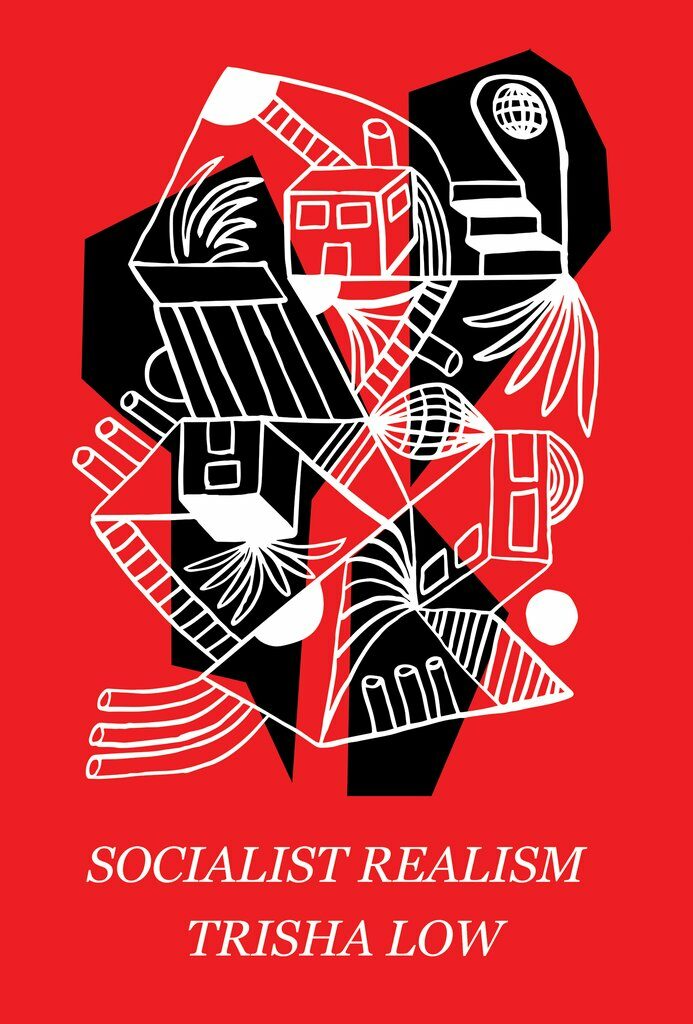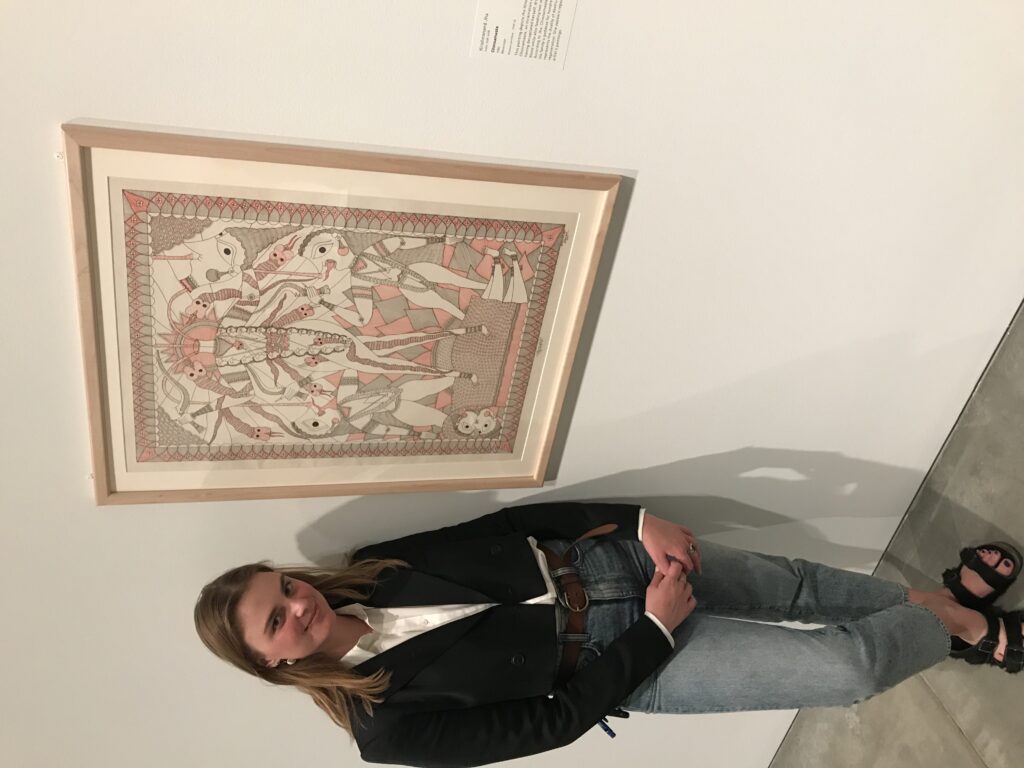Seeds of Comfort & Seeds of Resistance in Trisha Low’s Socialist Realism

Socialist Realism is available through Coffee House Press here.
May 2, 2020
Like most of the United States, I’ve been home for about three months now. Sheltering in place with my partner and our dog, I count myself lucky to not be entirely alone. Even so, I’ve made friends with my houseplants and the dust bunnies behind my bed. I tell stories to the silverware as I move them from sink, to drainer, to drawer to satisfy the need I feel to connect to a community – even if that community is a drawerful of spoons.
Before I graduated from college in December of 2019, I braced myself for a new kind of loneliness. I knew my world was close to sealing itself off, so I frantically collected phone numbers from classmates, nudging my phone into indifferent hands while my smile shook and palms wept with sweat. Just a few months past graduation, a pair of those hands reached out to me to see how I was doing and what I was reading. Truthfully, I wasn’t reading much more than the POS screen at my coffee shop job – but I took her reading list as gospel: “Currently I’m rotating through Trisha Low’s Socialist Realism, The Dead Ladies Project by Jessa Crispin, The Undying by Anne Boyer, and Initiated by Amanda Yates Garcia (it’s a memoir of the author’s relationship to witchcraft).” Socialist Realism arrived at my doorstep a few days after I received that text.
Low’s hybrid-form book lives in the borderlands between memoir, prose poetry, and autotheory in a frantic search for utopia. Her narrative deconstructs the concepts of home, romantic love, bodily ownership, cultural belonging, aesthetic allegiance, and community in an attempt to critically understand her desires and daydreams alike. While the genre is hard to categorize, the experience of reading it is familiar. Somewhere between wine-drunk and psychedelically awake, reading Socialist Realism feels like tracing the thoughts of your smartest friend. Low’s prose is musical and poetic, composed of everyday language that makes me laugh then quietly sink into thought. I finally found relief from telling stories to the spoons.
In the first few pages, Low poses the central question of her book: “Home, what even is it? I’m not sure, but I know I want it – because home is a chronic matter of wanting. Of forcing desire, despite itself, into a shape – one with a beginning, middle, and end. It’s about futurity.” I read these words in the early days of COVID-19, when Corona was only a distant threat – a meme that I shared with my partner on our couch. Within a few weeks, COVID-19 bound everyone to their home. The certainty of the future became exactly uncertain, but it remained married to my (our), “chronic matter of wanting.” I wanted to be with friends, so I glued my phone to my hand and kept calling. I wanted to be at my favorite restaurants, so I fed pasta shells to salt-water that boiled-over, added off-brand velveeta and called it cacio e pepe. Each sour spoonful was not what I craved, but served as a reminder of what I maybe could have, in some future, however far away that might be.
This “chronic matter of wanting,” roots each of the book’s themes – including the book’s title Socialist Realism. According to the internet, “Socialist Realism is a style of idealized realistic art that was developed in the Soviet Union and was the official style in that country between 1932 and 1988, as well as in other socialist countries after World War II.” And while this is technically true, Low calls attention to the feelings of desire (that “chronic matter of wanting”) that powers the group’s productive imagination and pursuit of utopia. She writes:
“socialist realists were not trying to depict the “communism” they saw directly in front of them. They knew the revolution they wanted to celebrate, no matter what the Soviet state claimed, was not yet within their reach, and therefore still unrepresentable…what they painted or sculpted or created were not idealized versions of their current reality; they were imperfect images that evoked the perfect unknown. A partial vision of the revolutionary future they believed was coming but could barely glimpse. It’s about beyond. It’s about –”
Low makes a habit of interrupting herself, and taking surprising turns in logic. Although some have dismissed this technique as unoriginal, the circuitous path she carves for herself and her reader is one of the strengths of the book. I see her structure as radical reassessment of the everyday that gives value to commonplace experiences. Low is resisting the pressure to write airtight in favor of something more breathable, and a little more relatable. One of my favorite lines:
“I turn my face into the wet pillow.
Potato.”
Low’s form also causes the memoir to accelerate in a way I rarely experience while reading – I found myself hungrier for Socialist Realism with every page I turned. I lifted the book to my face and scraped the words into my mouth, not stopping to wipe my mouth or catch my breath. Above all, I found myself paying attention to the home I took shelter in with a new sensibility. I noticed the smell of my neighbor’s cigarette smoke pouring through the vents in my bathroom. I stared at the seams of my walls, cracking and plastered over, cracking and plastered over. From my window, I see Downtown Oakland. In the heat of the day the skyline is shivering. The glass ceilings are splintered by the bright sunlight. 50,000 people have died of COVID-19 here in the US – and with the click of the refresh button – that number climbs to 50,401. Is the normal of pre-COVID-19 a world we want to go back to? We risk dying by going back to work; we risk starving by refusing to go to work. Can I even imagine a world beyond the devices of capitalism, a world where friends exist beyond pixels and pages? Can I see beyond my dog-chewed couch, can I see further than my window lets me?
Whether or not I can, or I could see, Low claims the importance of imagination as an important feature of sociopolitical revolution and utopia:
“Maybe utopia is imagining life beyond what we know is possible. For striving to create new ways to exist in the world and in relation to one another, ways that do not depend on our society’s current flawed foundations…José [Muñoz] taught me how it’s these small and numerous acts of imagining utopia that have the deepest implications for our lives – even if these direct results are not a perfect revolution.”
However, Low only shows her readers glimpses of utopia at most, and she certainly does not end her book-length essay in perfection. Before I knew it, Low’s memoir was over – or, rather, suspended mid-air. Despite the book’s desperate search, the reader never follows Low into the plush comfort of home. Low never reaches the arms of a steadfast lover. Does belonging evade Low or does Low evade belonging? Closing the red cover, I sense it is some combination of both. The dissatisfying ending doubles down on the fact that utopia is not a destination, or even a real place, but exists within the process of striving for it. However dissatisfying, this emphasis on both process and on imagination is exactly what reoriented me towards hope and the radical possibilities in everyday life.

Ashley Pattison-Scott is a writer living in Oakland, California.